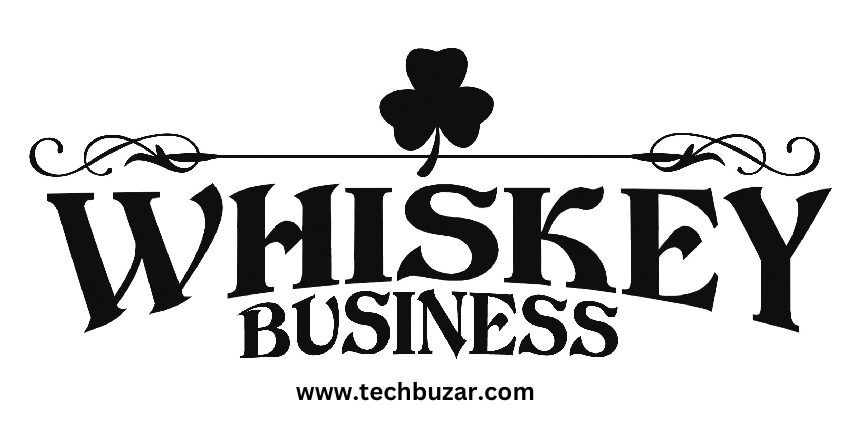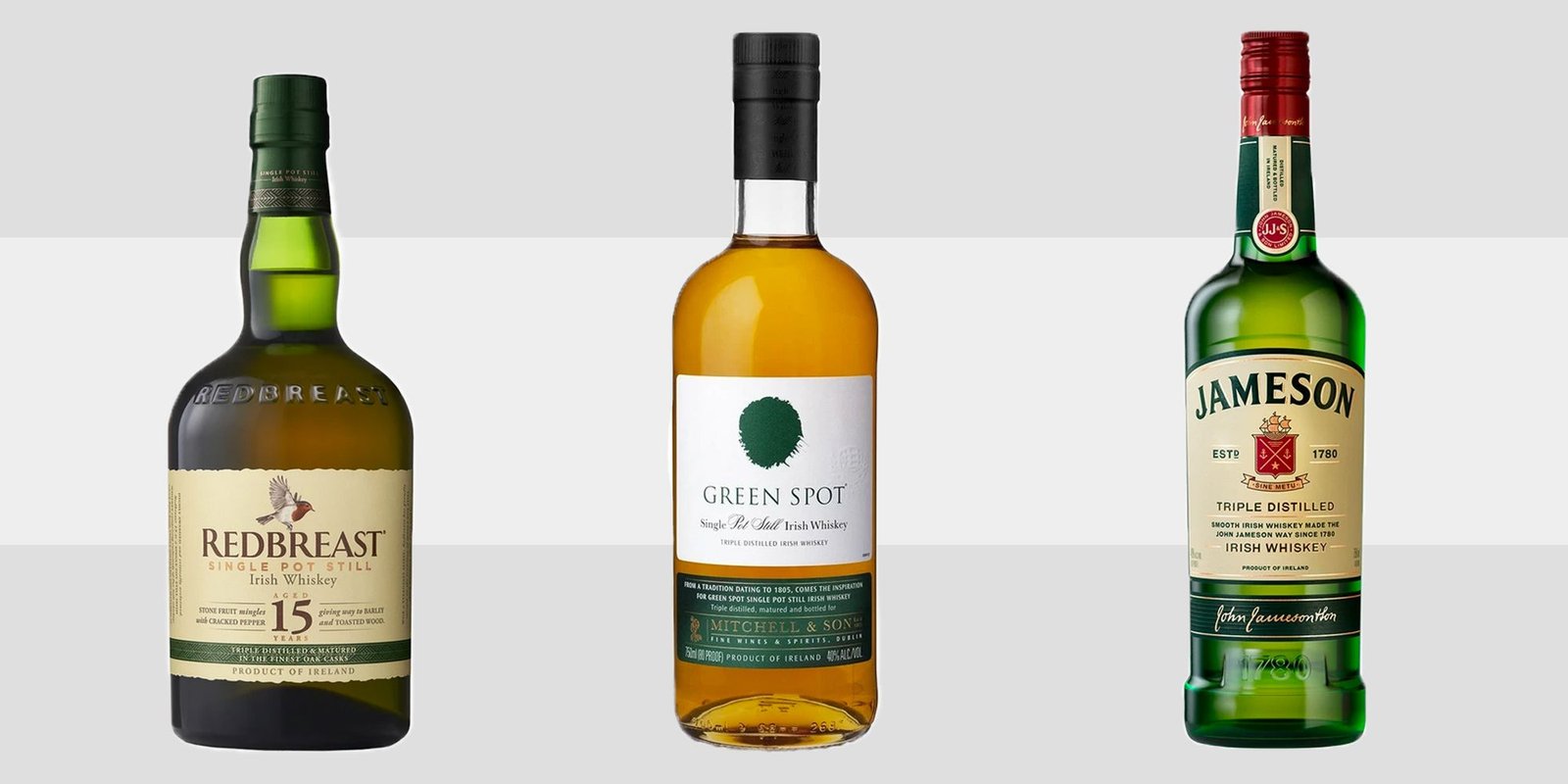
Whiskey Business: Navigating 100% the Spirits Industry: Benefitable or a loss ?
Whiskey, and Whiskey Business often referred to as the “water of life,” holds a significant place in the hearts of many around the world. From its rich history to its diverse array of flavors, the whiskey business continues to thrive, captivating both enthusiasts and entrepreneurs alike.
What is whiskey?
Whiskey, derived from the Gaelic word “uisge beatha,” meaning “water of life,” is a distilled alcoholic beverage made from fermented grain mash.
Why is the whiskey business popular?
The popularity of whiskey can be attributed to its versatility, cultural significance, and rich heritage. It serves as both a social lubricant and a symbol of celebration, making it a staple in bars, restaurants, and homes worldwide.
History of Whiskey And Whiskey Business
Origins of whiskey production
The origins of whiskey production can be traced back centuries to ancient civilizations such as the Babylonians and Egyptians, who were among the first to distill alcoholic beverages. However, it was the Irish and Scottish monks in the Middle Ages who perfected the art of distillation, laying the foundation for modern whiskey production.
Evolution of whiskey making techniques
Over the years, whiskey making techniques have evolved, incorporating innovations such as the continuous still and charred oak barrels. These advancements have led to the creation of diverse whiskey styles, each with its own distinct flavors and characteristics.
Types of Whiskey in the Whiskey Business
Differentiating between Scotch, Bourbon, and other types
Whiskey is broadly categorized into various types, including Scotch, Bourbon, Rye, and Irish whiskey, each with its own unique production methods and flavor profiles. Scotch whiskey, for example, is typically made from malted barley and aged in oak barrels, resulting in a smooth and complex spirit.
Regional variations in whiskey production that effect on Whiskey Business
The production of whiskey is not limited to a single region, with countries such as Scotland, Ireland, the United States, and Japan all boasting their own distinctive styles and traditions. These regional variations contribute to the diversity and richness of the whiskey industry.

The Global Whiskey Business
Current market trends and growth projections in Whiskey Business
The global whiskey market has witnessed steady growth in recent years, driven by increasing consumer demand and a growing appreciation for premium and craft spirits. According to industry reports, the market is expected to continue its upward trajectory, fueled by emerging markets and shifting consumer preferences.
Major players in the industry of Whiskey Business
The whiskey market is dominated by several key players, including Diageo, Pernod Ricard, and Brown-Forman, who command a significant share of the market. However, the rise of craft distilleries and small-batch producers has added diversity and competition to the industry landscape.
Challenges in the Whiskey Business
Regulatory hurdles and compliance issues
The whiskey industry is subject to stringent regulations and compliance requirements, which vary from country to country. Navigating these legal complexities can pose challenges for distillers, particularly smaller producers looking to enter the market.
Environmental concerns and sustainability efforts
As consumers become increasingly conscious of environmental issues, sustainability has emerged as a key priority for whiskey producers. From reducing water usage to implementing eco-friendly packaging solutions, distilleries are taking steps to minimize their environmental footprint.
Whiskey Production Process
Ingredients required for whiskey making
The production of whiskey begins with the selection of high-quality grains, such as barley, corn, rye, or wheat, which are mashed and fermented to extract sugars. Yeast is then added to the mash, triggering the fermentation process and converting sugars into alcohol.
Distillation and aging process
Once fermented, the mash is distilled to separate alcohol from impurities, resulting in a clear liquid known as “new make spirit.” This spirit is then aged in oak barrels, where it undergoes maturation, absorbing flavors from the wood and developing complexity over time.

Marketing and Branding in the Whiskey Business
Importance of branding for whiskey companies in Whiskey Business
In a crowded market, branding plays a crucial role in distinguishing one whiskey from another and capturing the attention of consumers. Strong branding can evoke emotions, convey authenticity, and build loyalty among customers.
Strategies for successful marketing campaigns
Successful marketing campaigns often leverage storytelling, heritage, and craftsmanship to create a compelling narrative around the brand. From social media engagement to experiential marketing events, distilleries employ various strategies to connect with consumers and drive sales.
Consumer Preferences and Trends
Changing tastes and preferences in whiskey consumption
Consumer preferences in whiskey are constantly evolving, influenced by factors such as age, gender, and cultural background. Millennials, in particular, have shown a preference for craft and artisanal spirits, driving demand for unique and innovative whiskey offerings.
Rise of craft distilleries and small-batch productions
The rise of craft distilleries has democratized the whiskey industry, allowing smaller producers to compete with established brands and offer niche products tailored to specific tastes. This trend towards artisanal production reflects a growing appreciation for authenticity and craftsmanship among consumers.
The Role of Technology in Whiskey Production
Innovations in distillation techniques
Advancements in technology have revolutionized the whiskey production process, enabling distillers to achieve greater precision and consistency in their spirits. From automated stills to computer-controlled aging systems, technology continues to drive innovation and efficiency in the industry.
Use of data analytics in market research and product development
Data analytics plays a crucial role in helping whiskey companies understand consumer preferences, identify market trends, and optimize their product offerings. By leveraging data-driven insights, distilleries can develop targeted marketing strategies and create products that resonate with their target audience.
Social and Cultural Impact of Whiskey
Whiskey’s role in social gatherings and celebrations
Whiskey has long been associated with social gatherings, celebrations, and rites of passage, serving as a symbol of friendship, hospitality, and camaraderie. Whether enjoyed neat, on the rocks, or in cocktails, whiskey has a way of bringing people together and fostering connections.
Cultural significance of whiskey in different regions
In addition to its social significance, whiskey holds cultural importance in various regions around the world, where it is deeply ingrained in traditions, rituals, and folklore. From the Scottish Highlands to the bourbon-soaked streets of Kentucky, whiskey reflects the identity and heritage of its place of origin.
Whiskey Tourism and Tasting Experiences
Popular whiskey destinations around the world
Whiskey tourism has become increasingly popular, with enthusiasts flocking to distilleries and whiskey bars to explore the craft and culture behind their favorite spirits. Destinations such as Scotland’s whisky trails, Kentucky’s Bourbon Country, and Ireland’s whiskey distilleries offer immersive experiences for visitors.
Importance of whiskey tastings for enthusiasts and connoisseurs
Whiskey tastings provide an opportunity for enthusiasts and connoisseurs to expand their knowledge, refine their palates, and discover new expressions and flavors. Guided tastings led by knowledgeable experts offer insights into the nuances of whiskey production and appreciation.
Investing in Whiskey Business
Growing interest in whiskey as an investment asset
With the rise of collectible spirits and rare bottlings, whiskey has emerged as an attractive investment asset for individuals seeking alternative avenues for wealth preservation and growth. Limited-edition releases and single malt whiskies, in particular, have proven to be highly sought after by investors.
Factors to consider before investing in Whiskey Business
Before diving into the world of whiskey investment, it’s essential to consider factors such as provenance, rarity, and market demand. Conducting thorough research and seeking guidance from industry professionals can help investors make informed decisions and mitigate risks.
Sustainability Practices in the Whiskey Business
Efforts towards reducing carbon footprint and waste management
In response to growing environmental concerns, whiskey producers are implementing sustainability practices aimed at reducing their carbon footprint and minimizing waste. From energy-efficient distillation methods to recycling spent grains, distilleries are embracing eco-friendly initiatives to protect the planet.
Sustainable sourcing of ingredients
Sustainable sourcing of ingredients, such as locally grown grains and renewable water sources, is a priority for many whiskey producers looking to minimize their environmental impact and support local communities. By prioritizing sustainability, distilleries can create a positive social and environmental legacy for future generations.
Future Outlook for the Whiskey Business
Predictions for the growth of the Whiskey Business
Despite challenges such as regulatory hurdles and market volatility, the future looks bright for the whiskey business, driven by growing consumer demand and expanding global markets. With innovation and adaptation, the industry is poised to thrive in the years to come.
Emerging trends and opportunities
Emerging trends such as flavored whiskies, ready-to-drink cocktails, and direct-to-consumer sales present exciting opportunities for whiskey producers to diversify their offerings and reach new audiences. By staying nimble and responsive to changing consumer preferences, distilleries can capitalize on emerging trends and drive growth in the market.
Conclusion
In conclusion, the whiskey business is a dynamic and vibrant industry characterized by rich history, diverse flavors, and cultural significance. From the distillation process to marketing strategies, whiskey companies must navigate a complex landscape of challenges and opportunities to succeed in the global market. By embracing innovation, sustainability, and consumer engagement, the whiskey industry is well-positioned for continued growth and prosperity.
Unique FAQs
- Is whiskey the same as bourbon?
- Bourbon must meet specific legal requirements, including being made in the United States and containing at least 51% corn in the mash bill.
- difference between Scotch and Irish whiskey?
- Scotch whisky is typically made from malted barley and distilled in Scotland, while Irish whiskey is made from a mix of malted and unmalted barley and distilled in Ireland. Scotch often has a smoky, peaty flavor, while Irish whiskey is known for its smoothness and sweetness.
- How long does whiskey need to age?
- The aging process for whiskey can vary depending on the type and style. While some whiskeys may only require a few years of aging, others, such as Scotch whisky, may age for decades to achieve optimal flavor and complexity.
- Can whiskey go bad?
- Unlike wine, whiskey does not spoil or go bad over time. However, once a bottle is opened, the whiskey may begin to oxidize and lose some of its flavor and aroma over an extended period.
- What is the best way to store whiskey?
- It’s essential to keep the bottle upright to prevent the cork from drying out and to minimize exposure to oxygen, which can affect the flavor of the whiskey over time.


